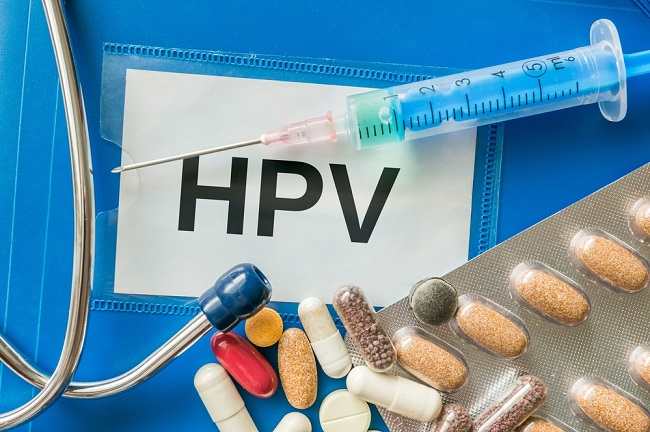Filgrastim is a drug used to treat neutropenia caused by cancer, chemotherapy, a bone marrow transplant, or other conditions. Filgrastim can only be obtained and used with a doctor's prescription.
Neutropenia is a condition when the number of one type of white blood cell, namely neutrophils, in the blood decreases. This condition makes it difficult for the body to fight bacterial infections.

Filgrastim is a synthetic (artificial) form of a naturally occurring substance called colony stimulating factor (CSF) in the body. This drug works by stimulating the bone marrow to produce new white blood cells.
Trademark filgrastim: Leucogen, Neukine
What is Filgrastim
| group | Prescription drugs |
| Category | Haematopoietic agents |
| Benefit | Treat congenital neutropenia or neutropenia due to cancer, chemotherapy, bone marrow transplant, or HIV. |
| Consumed by | Mature |
| Filgrastim for pregnant and lactating mothers | Category C: Animal studies have shown adverse effects on the fetus, but there are no controlled studies in pregnant women. Drugs should only be used if the expected benefit outweighs the risk to the fetus. Filgrastim may be absorbed into breast milk. Therefore, it should not be used during breastfeeding. |
| Drug form | Inject |
Warning Before MengUseFilgrastim
Filgrastim should not be used carelessly. There are several things that must be considered before using this drug, including:
- Do not use filgrastim if you are allergic to this medicine or to pegfilgrastim.
- Tell your doctor if you have or have had kidney disease, leukemia, lung disease, sickle cell anemia, problems with the spleen, thrombocytopenia, or radiation therapy.
- Tell your doctor if you plan to have dental work, surgery, or chemotherapy.
- Tell your doctor if you are taking certain medications, supplements, or herbal products.
- Tell your doctor if you are pregnant, breastfeeding, or planning a pregnancy.
- See your doctor immediately if you have an allergic drug reaction, serious side effect, or overdose, after taking filgrastim.
Dosage and Instructions for Use Filgrastim
The dose of filgrastim will be determined by the doctor based on the patient's weight. The following is the dosage of filgrastim to treat neutropenia in adults which is divided according to its intended use:
- Purpose: Treating neutropenia due to chemotherapy
5 mcg/kgBW 1 time a day, by injection under the skin (subcutaneously/SC) or infusion through a vein (intravenous/IV) for 15-30 minutes. Therapy is continued until neutrophil levels are normal, generally for about 14 days.
- Purpose: Treating neutropenia after bone marrow transplant
10 mcg/kgBW 1 time a day, by intravenous infusion (IV) for 0.5–4 hours or by infusion by injection under the skin (SC) for 24 hours.
- Purpose: Treat congenital neutropenia
12 mcg/kg once daily or in divided doses, given by injection under the skin. The dose can be changed according to the patient's response to the drug.
- Purpose: Overcoming neutropenia due to HIV
1 mcg/kgBW 1 time a day, the dose may be increased up to 4 mcg/kgBW a day, until neutrophil levels are normal. The maintenance dose is 300 mcg per day, the maximum dose is 4 mcg/kg BW 1 time a day.
How to MengUse Filgrastim Correctly
Follow your doctor's advice before using filgrastim. Filgrastim injection is only given by a doctor or medical personnel under the supervision of a doctor.
Perform regular blood checks to the doctor while on treatment with filgrastim.
Filgrastim should be stored in the refrigerator, should not be frozen, should not be shaken, and should not be kept at room temperature for more than 24 hours.
Dispose of single-use injection filgrastim after use and keep it out of reach of children and pets.
Filgrastim Interactions with Other Drugs
There are several drugs that can interact with filgrastim, namely:
- Lithium
- Pegfilgrastim
- Vincristine
To avoid the effects of drug interactions, tell your doctor if you are taking other medicines before starting treatment with filgrastim.
Filgrastim Side Effects and Dangers
Filgrastim can cause a number of side effects, including:
- Redness, itching, swelling at the injection site
- Muscle, joint, bone pain
- Headache
- Dizzy
- Nauseous
- Throw up
- Decreased appetite
- Insomnia
- Constipation
- Diarrhea
- Hair loss
- Fatigue
- Nosebleed
Check with your doctor if the side effects above don't go away or get worse. See your doctor immediately if you have an allergic reaction to the drug or a more serious side effect, such as:
- Severe stomach pain or pain
- Fever
- Heart beat
- Hard to breathe
- Swelling in the abdomen, face, or ankles
- Easy bruising or bleeding
- Dark or bloody urine
- Bleeding cough
- Pain when urinating









